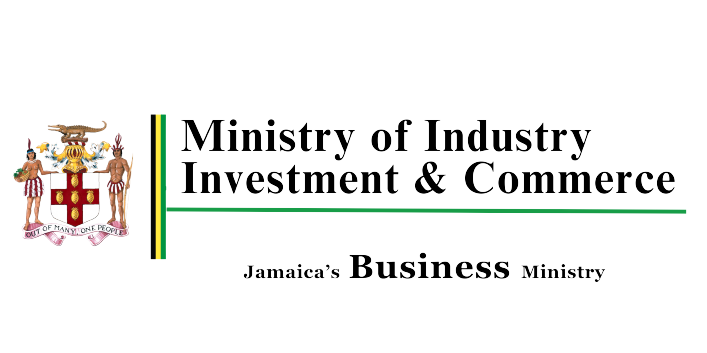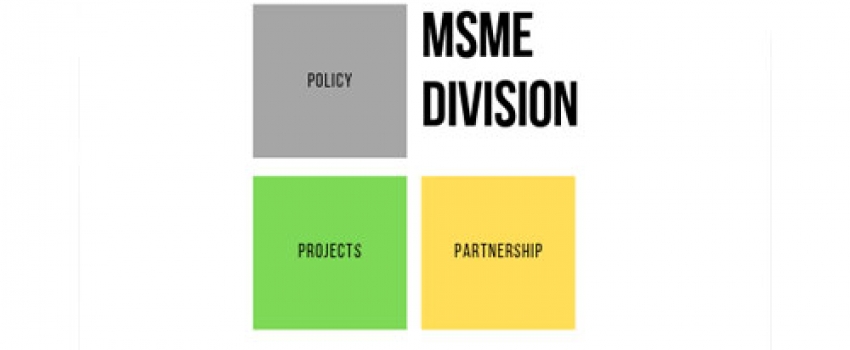2020, April 7: Micro, Small and Medium Enterprises (MSMEs) are being urged to become formalized to benefit from government assistance, which may help them continue their business after the threat posed by the corona virus pandemic has ended.
Among the offerings announced recently by the government in the recent 2020/2021 Budget presentation, are a $375,000 tax credit, and a $100,000 cash grant for MSMEs. The aim, according to Finance and Planning Minister, Dr. Nigel Clarke is to minimize the tax burden on small taxpaying business operators, and to encourage more persons to become formalized. “MSMEs are an integral part of Jamaica’s economic activity and growth; the more we incentivize formalization, the more we capture their contribution to growth”, Minister Clarke explained.
Additionally, the budget has earmarked $485.8 million to boost an initial grant of USD50 million obtained from the Inter-American Development Bank (IADB) for a Boosting Innovation, Growth and Entrepreneurship Ecosystems (BIGEE) project. Among other things, the funding will go towards increasing the number of MSMEs accessing equity financing and capacity-building. Minister Clarke also announced that $830 million will be allocated for propping up the Credit Enhancement Facility (CEF) at the Development Bank of Jamaica intended to provide loan guarantees for businesses facing collateral issues when accessing loans.
MSMEs account for a significant number of the employed labour force, estimated to be over 30 per cent. As such, it is important that support to the sector is provided to ensure that businesses survive the devastating impact of the corona virus if the economy is to record growth going forward.
However, not all MSMEs will benefit from the government incentives being provided, as they fall outside of the formal economy. According to a 2006 IDB study, approximately 36 per cent of micro and small businesses met the requirements for formality.
One of the basic legal requirements for formalization is registration with the Companies Office of Jamaica, in accordance with either the Companies Act or the Registration of Business Names Act. Licensed to operate as required under the License to Trade and Business Act, Spirit License Law, Hotel License and related Acts, is also critical towards the path for formalization, as well as, fulfilling all tax obligations.
The appeal for firms to formalize their operation was further articulated by the Finance and Planning Minister, Dr. the Honourable Nigel Clarke in his closing budget presentation on March 24, 2020. In announcing additional benefits to mitigate the impact of COVID -19, the Minister repeated the call that beneficiaries must be part of the formal economy as registered, tax-paying entities.
The assistance package will benefit businesses with sales of up to $50 million, which filed taxes in the 2019/20 financial year, and filed payroll returns evidencing they have employees. The relevant firms will be eligible for a one-time COVID small business grant of $100,000 each, while small operators in tourism and related sectors are to benefit from a $1.2 billion grant package.
Principal Director of the MSME Office within the Ministry of Industry, Commerce, Agriculture & Fisheries (MICAF) Mr. Oral Shaw notes that MSMEs that continue to remain informal may face several disadvantages in accessing some of the government assistance packages, thereby limiting their ability to scale. He notes that some of the benefits flowing from business registration include: access to more affordable and appropriate financing, access to the stimulus and rescue packages for COVID -19 and other incentives and opportunities for collaboration with partners for business expansion.
Data generated by the International Finance Corporation (IFC), a subsidiary of the World Bank in 2016 indicated that 27% of all formal SMEs have a bank loan, or access to credit, which is below the average of 48% in Latin America and the Caribbean (LAC). The IFC also states that over 40% of firms in Jamaica consider access to finance to be a major constraint, but it is more acute for the small firm, where 47% indicated it was a major constraint (compared with an average of 32% in the LAC region).
It was pointed out in a 2018 Planning Institute of Jamaica (PIOJ) report (entitled “An Assessment of the Implementation and Impact on the Government of Jamaica’s Growth Inducement Strategy (GIS) by Dr. David Tennant) that due to the challenges faced by small businesses in accessing suitable sources of funding, MSME financing was specifically targeted as a priority area under the GIS (page 23).
Several studies have indicated that among the barriers to business formality in Jamaica is the high level of bureaucracy in the administrative and regulatory environment. However, there are positive indicators showing that Jamaica is moving in the right direction, according to the World Bank’s Doing Business Report (DBR) which measures a country’s progress in implementing business environment regulatory and administrative reforms.
According to the 2012 Doing Business Report, Jamaica ranked 88 out of 183 countries, however by 2015, Jamaica jumped to 64th in the DBR. Jamaica’s greatest improvement came in the areas of “Getting Credit” were it had the ranking of 12th (a movement of 97 places) and “Starting a Business” where it occupied the 20th place. The 2018 report ranks Jamaica at 70th overall, 20th for getting credit and 5th as it relates to starting a business.
According to the 2018 PIOJ document, while the average time required to start a business in Jamaica has increased marginally over the review period (moving from eight days before the GIS [which was launched in 2012] to nine days afterwards), the number of start-up procedures needed to register a business fell from an average of six in the period before implementation of the GIS to two after. Additionally, the attendant costs associated with business start-up procedures fell from 5.9% of gross national income (GNI) per capita before the GIS to 4.7% afterwards (page 74). The report concluded that efficiencies in the processes for starting a business are reflective of government’s efforts (page 74).
Mr. Shaw informed that a revised MSME and Entrepreneurship Policy was developed in 2018 to build on the advances achieved under an initial policy in 2013. The policy document is one of the many developments cited for Jamaica’s improved ranking in the World Bank’s DBR. One of the key objectives of the policy is to increase the participation rate of MSMEs in the formal economy.
Initiatives outlined in the policy for accomplishing this include:
- Bolstering the existing incubator systems among business partners that support MSMEs throughout the entrepreneurship process, from idea generation to harvesting (reaping the benefits);
- Launching a public education campaign on the benefits of formality and its impact on enterprise growth;
- Expanding the network of existing business services providers to support business formalization;
- Ensuring that all beneficiaries of Government support become tax compliant;
- Reducing the processing time for business registration through the development of an Eregistration platform.
The MSME Office was established within MICAF in 2016 to facilitate the development of a policy environment that meets the Government of Jamaica’s vision for “inclusive growth” with a vibrant MSME sector making a measurable contribution to sustainable employment and revenue generation. Increasing the participation of MSMEs in the formal sector can catalyze employment and revenue growth. It is within this context, that in 2018, the MSME Office developed a proposal containing 55 policy measures for increasing MSME formality, which has been discussed with several stakeholders in the private and public sectors.
A couple of the measures proposed have been adopted and implemented by the government namely: abolishing the minimum business tax, and the provision of tax credits to MSMEs. It is anticipated that going forward, the government will continuously review the proposed measures, and adopt relevant ones for implementation to increase the participation rate of MSMEs in the formal sector.
-End-
Contact: Angela A. Hamilton
Promotions and Outreach Manager
MSME Division, MICAF
aahamilton@micaf.gov.jm







